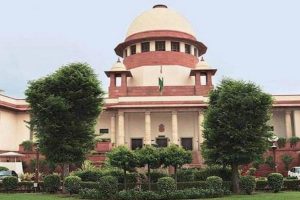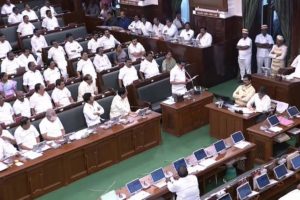Amid rising legal opposition to the Waqf (Amendment) Act, 2025, intervention applications have been filed in the Supreme Court supporting the amended legislation, asserting that the changes align with the Indian Constitution.
The applications were submitted by Satish Kumar Aggarwal, a member of the Akhil Bharat Hindu Mahasabha, and Vishnu Gupta, National President of Hindu Sena. Filed through advocate Barun Sinha, the applications oppose petitions that claim the amended Act discriminates against the Muslim community and violates fundamental rights.
The intervenors argue that the amendments correct longstanding misuse of the Waqf Act, particularly Section 40 of the 1995 version, which allowed Waqf boards to declare any property as Waqf based on their belief, resulting in the acquisition of vast land parcels. They assert that such powers went against constitutional principles and led to the unjustified takeover of land owned by others.
“No law should grant unchecked authority to acquire land based on religious practices,” the application reads. It defends the amendment as a necessary correction to what they term “draconian provisions” of earlier versions of the Act.
The Supreme Court bench led by Chief Justice of India Sanjiv Khanna, along with Justices Sanjay Kumar and KV Vishwanathan, is scheduled to hear a batch of petitions against the Act on April 16.
The Central government has also filed a caveat in the Supreme Court, requesting that no decision be made without its participation.
Meanwhile, numerous political leaders and organizations—including AIMIM MP Asaduddin Owaisi, Congress MPs Mohammad Jawed and Imran Pratapgarhi, AAP MLA Amanatullah Khan, and the All India Muslim Personal Law Board—have filed petitions challenging the Act. They argue it is arbitrary, discriminatory, and facilitates unwarranted state interference in Muslim religious endowments.
Even MPs and MLAs from regional parties like RJD and DMK have voiced their opposition. DMK MP A Raja, a member of the Joint Parliamentary Committee on the Waqf Bill, has also moved the apex court, reinforcing the widespread criticism from opposition ranks.
President Droupadi Murmu gave her assent to the Waqf (Amendment) Bill on April 5, after it passed through Parliament following intense debates. As the legal battle unfolds, the Supreme Court is set to weigh the constitutionality of the amendment amidst a deeply polarizing national discourse.





